Amazon's low-income NYC neighbors want to know: Will they be hired, too?
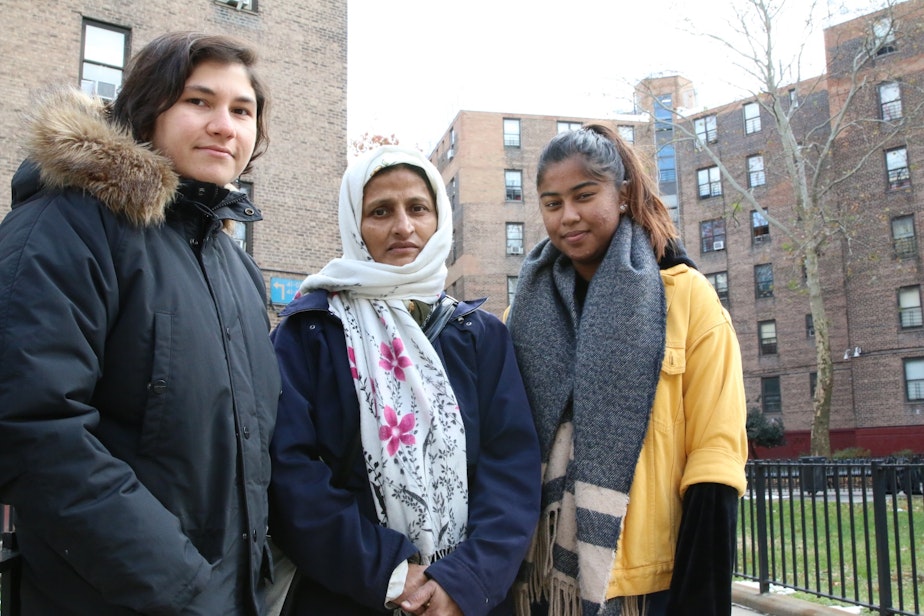
Earlier this month, Amazon announced that it would be setting up its New York headquarters just a 15-minute walk away from the country's largest public housing project.
Now, residents of the Queensbridge Houses are waiting to see if their new corporate neighbors will help or hurt them.
Queensbridge is home to 7,000 low-income residents, some of whom told KUOW they were worried about jobs — the ones that are coming and the ones that could be going away.
Brothers and Queensbridge residents James and David Bowens wondered if Amazon will hire people with criminal records.
"About the Amazon thing, I don’t think it’s a bad thing," James Bowens said. "But the thing you have to understand is that in these impoverished neighborhoods, it’s a lot of crime. And it’s a lot of people who can’t get jobs because of their criminal backgrounds.”
“They’re just selling drugs to provide because they can’t find no other way to provide,” David Bowens added.
Amazon has announced that it will bring 25,000 jobs to its New York City headquarters. But half of them will not be the high-paying tech jobs for which Amazon is known.
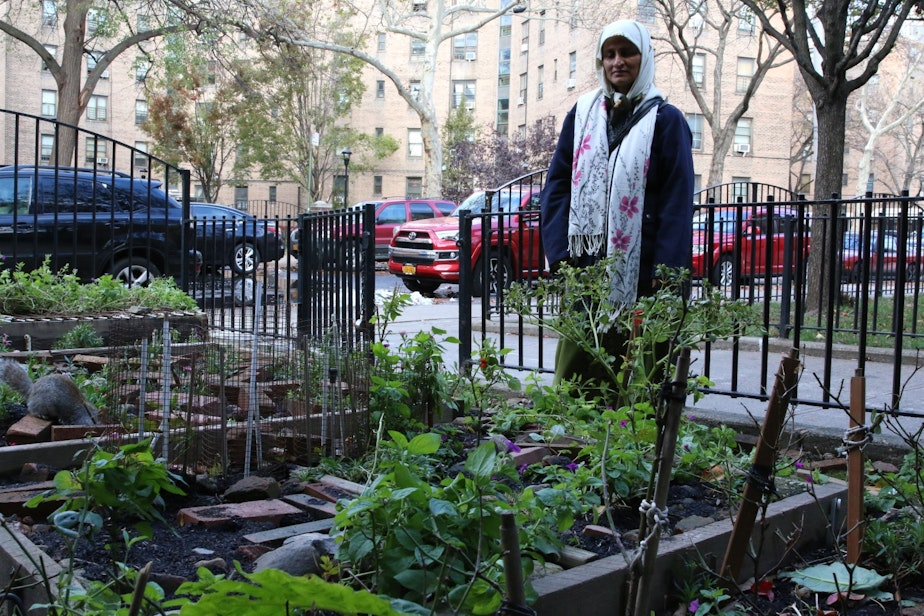
So what about those administrative jobs? Cleaning jobs? Security?
James Bowens said Amazon could make a real difference in the neighborhood — if the company is willing to hire ex-cons.
“Because that’s what’s really hurting this community and other impoverished communities around here," Bowens said.
In Seattle, Amazon does not have a targeted program to hire people who have been involved in the criminal justice system. When asked if this is something they'd consider for their second headquarters, the company did not immediately respond.
David Bowens is also wondering if Amazon will hire union workers. Amazon's labor practices have long been criticized by unions and some politicians — some of whom have accused the commerce giant of working to prevent a union from forming at Whole Foods, its latest acquisition.
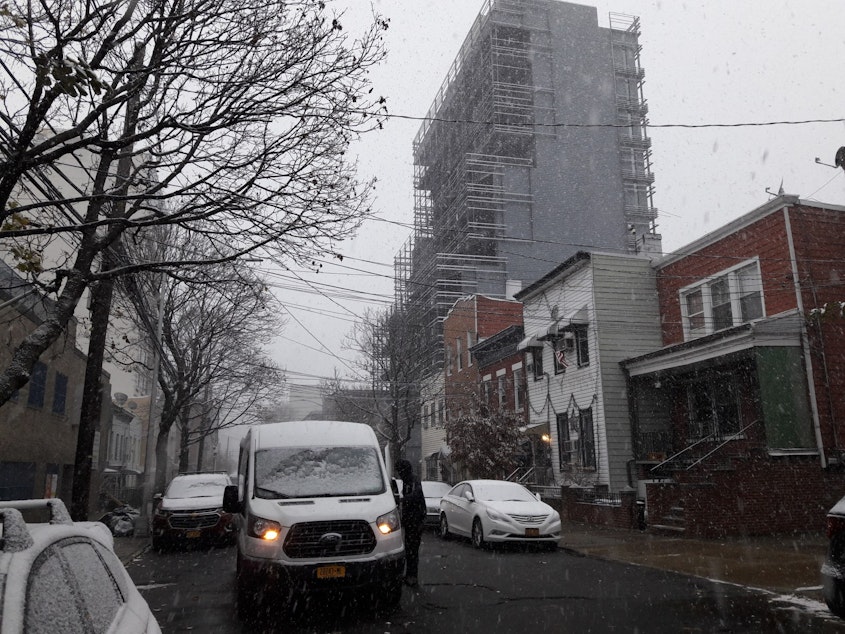
As for the pay, Amazon does have an internal $15 minimum wage, but that alone won’t be enough for people in Queens County. Here a living wage is $16.50 an hour for a single person. If you have a child, you need to earn more than $30 an hour.
Queensbridge resident Nayrin Muhith said she didn't know whether Amazon would create jobs for people like her — and she's already feeling Amazon's impact.
Muhith has been trying to organize locals to start up a new mosque, but recent land speculation associated with HQ2 may make that impossible.
“If Amazon's coming here and pushing people out, that's not good for us" she said. "Everybody's low-income people. Where do they go?"
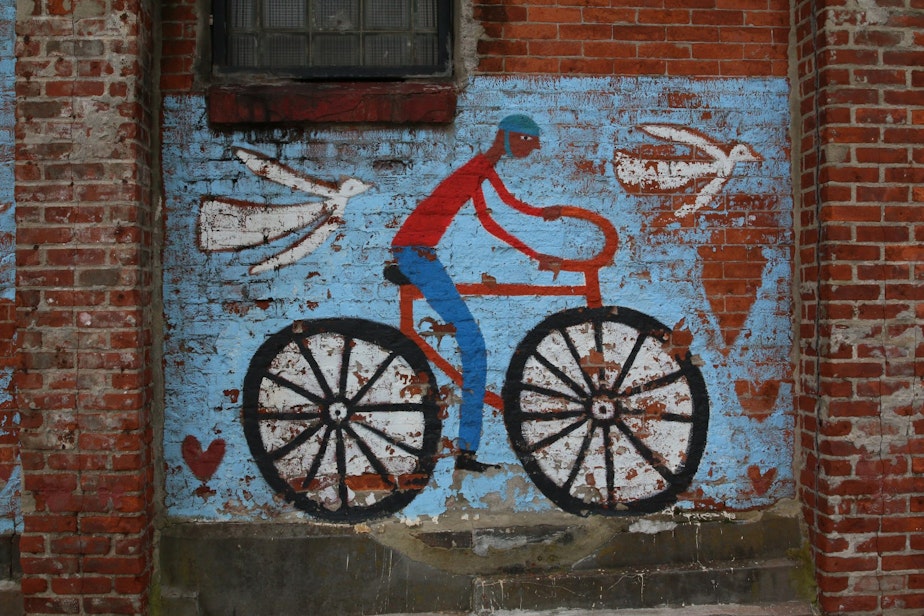
And even as Amazon brings jobs, it could disrupt other kinds of employment. As land near Long Island City becomes more valuable, taxi repair and food cart businesses are being replaced by new hotels and condos. Amazon’s arrival could accelerate those changes.
Lena Afridi, director of economic development policy for the Association for Neighborhood and Housing Development, said this kind of gentrification could also impact an important social safety net for New York's low-income communities: bodegas.
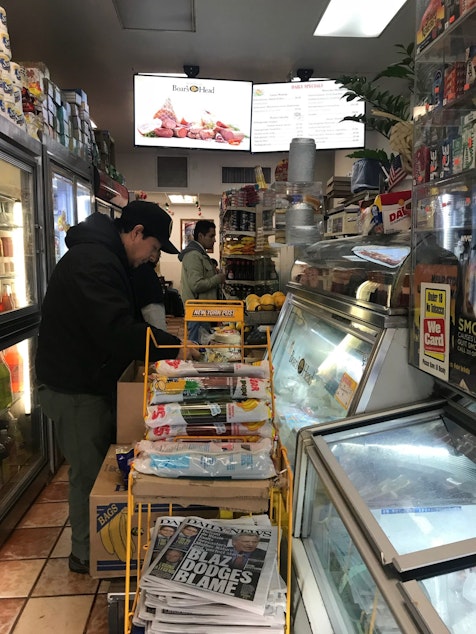
Many bodegas here are minority-owned, Afridi explained. Some will let people buy things on credit when they don’t have enough cash. That helps people get by in Queensbridge.
When landlords see the potential to charge higher rents, Afridi said they sometimes find ways to force bodegas to close.
"I absolutely think bodegas are threatened," she said. "I don’t think bodegas as an institution are threatened. But I think that individual stores that people have a community connection with are threatened by speculation that’s already started since the Amazon announcement came up."
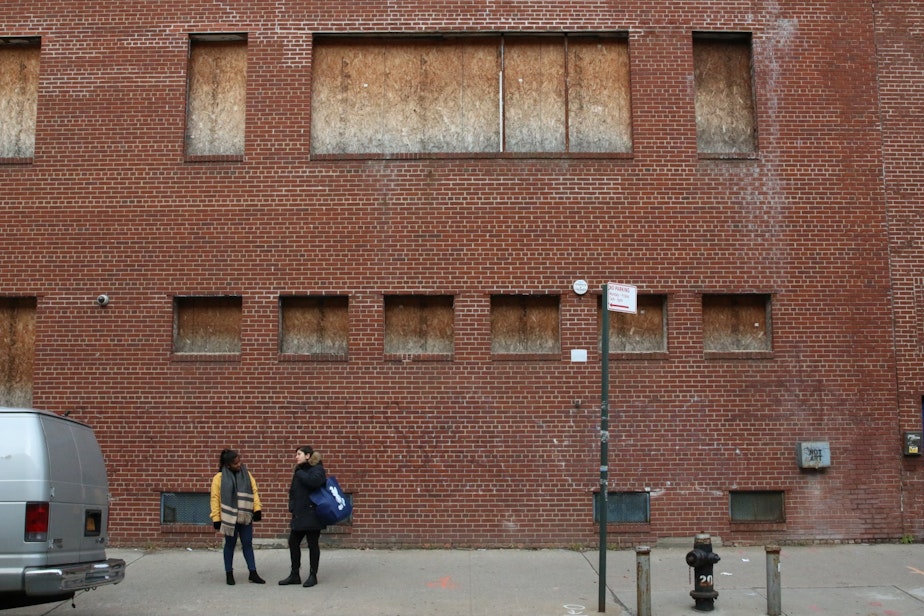
That kind of speculation has been going on in this part of Queens for some time, Afridi said. You see it reflected in the posh yoga studios and cycling places near Amazon's future headquarters. "But it’s definitely reached a fever pitch," she added.
James Bowens illustrates that point another way: He said he got lost getting off the subway recently.
“You start to feel like you don’t belong in a place you’ve been your whole life," he said.




